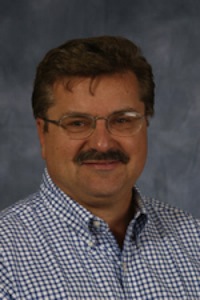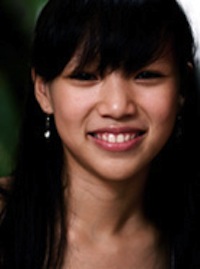
|
Leonard Richter is professor of music in piano and theory at Walla Walla College. At WWC since 1978, he is an award-winning teacher whose piano students have gained national and international recognition. He studied with several noted teachers including Anna Skalicka, Brno Conservatory; Dora Zaslavasky, Manhattan School of Music; and Adele Marcus, The Juilliard School. While at WWC, Richter has established a reputation for producing outstanding pianists who consistently rank high in regional and national competitions.
I know that you did your early study in what is now the Czech Republic. What was that like?
I grew up under Communism, which was a major negative factor of my development. It was horrible! My mother’s family had a history of achievement, and had some money. That identified us as “exploiters of society” to the Communists, and that meant every educational opportunity I applied for was denied to me. We later found out that the Secret Police kept a background file on us.
That must have been terrible.
Well, I found my way. I studied privately with the best teacher in what was then Czechoslovakia, Mme. Skalicka, who taught at the Brno Conservatory. She had studied with Vilém Kurz, the famous Czech teacher who also taught Ivan Moravec. Kurz had studied with Liszt. Kurz had a wonderful book of exercises to build technique. I worked through it with Mme. Skalicka, and am now in the process of translating it. I would like to make an accompanying video - it takes some training to be able to use properly.
What was she like as a teacher?
She was very autocratic and brooked no opposition. In those days, they believed that put-downs and sarcasm were the way to motivate you to do your best. There were never any compliments - nothing was ever good enough. Only once did she say something positive to me. She said I had improved more in one year than other students did in six. But I learned a lot. I started with her at age 14. She made me stop playing all pieces until she had totally rebuilt my technique. Feel the key lifting your finger, she would say. We worked in enormous detail and went very gradually. I was forbidden to play anything I had worked on before, a total break with previous bad habits.
I was totally dedicated and absolutely into it. Legatissimo, legato, staccato, staccatissimo - we spent a lot of time on each touch. We did every possible exercise, based on the Joseffy School of Advanced Piano Playing. It was impossible to get the book under Communism - we had to contact my father’s family in Vienna. After three months, we worked on Czerny, op. 821, 160 8-Measure Exercises. They are wonderful. I did four a week, up-to-tempo, four times each, all from memory.
Were you eventually able to perform in public?
I applied for many festivals and competitions, but was always refused, because of the political situation. But there was a musician, a Communist in his public life but a good man otherwise. Somehow he knew about me, although we never met. When I was 18, he arranged for me to play for the faculty of a school in a small city called Mestolida and I started teaching there. Since I was working, that enabled me to study at a conservatory for working people four hours away. They accepted me into the second year of study, and then skipped me to the fourth year. I ended up teaching there for five years, teaching 70 lessons a week to the children of generals and other higher-ups.
Do the students you teach now have the same level of dedication that you had?
I lived in an extreme situation. I did what I could and what I had to. There wasn’t too much choice - the government decided what I could do. But today I have some dedicated students, some who drive many hours to take lessons. Students today are not so willing to focus on basics. They want things fast and are hard to convince. I think students can improve a lot by simply working on scales.
Many top teachers are based in large metropolitan areas. You chose to make your career in a very charming, but smaller city, Walla Walla, WA. How did that happen?
I was an immigrant with no money and no idea what to do - I had even worked construction in the summers with my cousin. I was in New York finishing my classes for my doctorate, I got a call about an opening at Walla Walla College. I needed a job, so I flew out, played a recital and they offered me a job. At first, it scared me to be in this place so far away from cities. But I loved the people, the facilities, and especially the kids. I don’t know - the good students have just kept coming. Maybe because I’m an immigrant, I like the stability, the nurturing environment that Walla Walla provides me. I worked like a dog when I got here. I wanted to teach everyone to play the piano!
I know you spend time coaching other teachers’ students. Is that a different experience than working with students for whom you are the primary teacher?
This has been a later stage in my career, at the request of other teachers. I work with these students every couple of months. In an hour we cover two or three pieces, in front of the primary teacher. I help many before competitions and to help them develop a deeper understanding of literature. I am totally free, as if I were working with my own students. I demonstrate, come back in two or three weeks and the teacher has fixed everything. I really enjoy it. Many of the students end up studying me at Walla Walla College. I think it provides good variety for me and I can help a greater number of students.
I know you were close to Adele Marcus, the legendary teacher at Juilliard.
When I came to this country, I knew nothing because I had been so isolated. I went to Chicago and heard some Marcus students play. I was so stunned at their playing - I didn’t have the same freedom of body movement. I couldn’t afford her lesson tuition, but went to Don Walker, her former student and went through the regimen. After three months of doing her technic, people knocked on my door and asked what happened. That was the second turning point in my musical development - she freed me up musically, too.
She had a generosity of spirit and a larger-than-life quality that was inspiring.
She came to Walla Walla College and gave class for a whole week. 150 people attended from all over. She talked without notes and was marvelous. One young man was so stiff and mechanical; she played for him and it was gorgeous, and his playing improved immediately. Her memory still inspires me.
|



